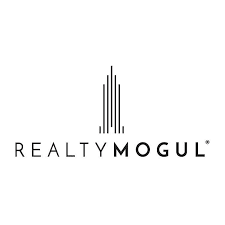Real estate crowdfunding platforms remove many of the barriers and risks associated with real estate investing. Instead of buying individual properties outright, you go in on real estate deals with a group of investors.
While many real estate crowdfunding sites require you to be an accredited investor with high net worth, some platforms are open to non-accredited investors.
Read on for an overview of the best real estate crowdfunding for non-accredited investors with a few tips for getting started.
7 Best Real Estate Crowdfunding Sites for Non-Accredited Investors
Here are the top real estate crowdfunding sites for non-accredited investors to utilize today:
1. Fundrise
Founded in 2010, Fundrise is a leading crowdfunding platform that follows a “value investing” strategy, acquiring undervalued properties and upgrading them to generate a profit for its investors.
It’s a great pick for new investors, with a low minimum investment of $10, low management fees, and a track record of solid returns.
Fundrise’s primary focus is eReits, with a wide selection of residential and commercial real estate investing opportunities.
Investors can choose from three Core Plans geared toward different investing goals: Supplemental Income, Balanced Investing, and Long-term Growth.
You can set your account up to automatically reinvest dividends or have them paid out quarterly.
- Property type: Apartment buildings, single-family rentals, industrial properties
- Fees: 0.15% annual fee
- Minimum initial investment: $10
- Minimum investment length: 5 years, quarterly liquidity
- Potential ROI: 8-12%
I’ve been investing with Fundrise since 2017. Disclosure: when you sign up with my link, I earn a commission. All opinions are my own.
2. CrowdStreet
CrowdStreet is a reputable investment platform that recently opened the door to non-accredited real estate investors with its Medalist and Impact Housing REITs, lowering its minimum investment from $25,000 to $1,000.
It’s a great choice if you want to generate passive income from commercial investment properties. Since it launched in 2014, the company has offered more than 752 commercial properties to investors.
With CrowdStreet, you can make money in two different ways—with ongoing distributions or a share of the property’s sale.
When it comes to investment strategies, you can choose to invest in diversified funds, select individual deals, or have a customized investment portfolio built and managed for you. Asset management fees vary from fund to fund.
- Property type: Commercial property
- Fees: 1.5-2.5% annual fee
- Minimum initial investment: $1,000
- Minimum investment length: 5-7 years
- Potential ROI: 7%
3. RealtyMogul
RealtyMogul is a popular crowdfunding site that lets both accredited and non-accredited investors invest in commercial real estate opportunities.
There’s a $5,000 minimum investment, which may be a deal-breaker for some.
Once you’re enrolled, you can share your investing goals and view your eligible investments.
Non-accredited investors can choose from two proprietary real estate investment trusts (REITs)—the RealtyMogul Income REIT and the RealtyMogul Apartment Growth REIT. Essentially, these are managed real estate portfolios.
Since their inception, both of these REITs have generated at least a 7.80% return.
Learn more in our article Fundrise vs. RealtyMogul – How These Crowdfunding Sites Compare
- Property type: Commercial property
- Fees: 1-1.25% annual fee
- Minimum initial investment: $5,000
- Minimum investment length: N/A
- Potential ROI: 6-8%
4. Arrived
Arrived is a real estate crowdfunding site for investors interested in investing in rental or vacation homes. The minimum investment is only $100, making it a great option when looking for the best real estate crowdfunding for non-accredited investors.
The relatively new company began in 2020, intending to make investing in real estate easier. Arrived handles all operations and administration, paying shareholders a percentage of the net rental income and home appreciation based on their investment.
Arrived has almost 300 properties to consider, with Arrived professionals accepting less than 1% of the top properties presented to them for investment opportunities.
Investors have many options for investment strategies but Arrived highly encourages diversification as most investments require at least a 5-year holding period.
- Property type: Single-family residential and vacation rentals
- Fees: Long-term rentals (Source fee: 3.5% of the purchase price, Annual Assets Under Management: 0.15% of sales price quarterly); Vacation rentals (Source fee: 5% of the purchase price, Gross Rents Fee: 5% of Gross Revenue)
- Minimum initial investment: $100
- Minimum investment length: 5 years
- Potential ROI: 5.5% – 15%
5. Streitwise
Streitwise is a crowdfunding platform that allows accredited and non-accredited investors to purchase shares of federally registered real estate offerings.
Technically, Streitwise is a non-traded REIT, meaning that the asset class isn’t traded on Wall Street. Therefore, it’s not subject to stock market volatility.
Streitwise typically pays out quarterly dividends. Investors are encouraged to make long-term investments. While you can sell your shares after one year, you’ll incur a penalty fee if you sell them before the five-year mark.
Streitwise offers a unique approach to crowdfunding as it only has one investment available. It might be an appealing choice for investors that want a simple real estate portfolio and don’t mind a higher minimum investment.
- Property type: Commercial properties
- Fees: 2% annual fee
- Minimum initial investment: $5,000, on average
- Minimum investment length: 5 years
- Potential ROI: 5-6%
6. GroundFloor
Similar to Crowdstreet, GroundFloor has a low initial investment minimum of $10.
The platform has a few unique features. First, it specializes in short-term real estate investments. Rather than taking years to pay off, Crowdstreet claims portfolios can bring in cash flow in as little as nine months.
These short-term investments are loans distributed to investors for fix-and-flip projects that are intended to be bought, renovated, and sold quickly for a profit.
Disclaimer—construction costs and the housing market can be uncertain, so these types of investments can come with a higher risk than long-term properties that bring in rental income.
To minimize that risk, Crowdstreet thoroughly vets prospective borrowers.
- Property type: Fix-and-flip properties
- Fees: No fees
- Minimum initial investment: $10
- Minimum investment length: <1 year
- Potential ROI: 10%
7. Roofstock
Roofstock is a one-stop shop for real estate buyers, sellers, and investors that specializes in single-family rental properties.
If you’re a non-accredited investor, you won’t be able to invest in REITs. However, you can directly purchase rental properties on the Roofstock platform. It can be a convenient tool for comparing and purchasing properties.
This type of investment can provide steady rental income from the day you find a tenant. You also get the added benefit of appreciation since you own your real estate asset.
Once you purchase a home, you can manage it yourself or use a property management service vetted and recommended by Roofstock.
If you live in one of the 26 states where Roofstock operates, it could be worth considering for your next real estate purchase.
- Property type: Single-family homes
- Fees: 5% marketplace fee + closing fees
- Minimum initial investment: N/A
- Minimum investment length: N/A
- Potential ROI: Varies by property
Difference Between Accredited and Non-Accredited Investors
Accredited investors are required to meet income, net worth, and professional qualifications, which give them access to more complex investing opportunities.
Key financial requirements Accredited Investors have to meet:
- Income: According to the Securities and Exchange Commission (SEC), accredited individual investors must earn at least $200,000 in income in the last two years. Alternatively, couples must earn at least $300,000.
- Net worth: Alternatively, if the individual or couple has a net worth of at least $1 million at the time of the transaction, they can also qualify as being accredited.
The vast majority of the population earns less than the amounts above and has less than $1 million in net worth.
How Real Estate Crowdfunding Works
While each real estate crowdfunding company has its own unique approach, the concept is basically the same across all the platforms.
This investment approach uses crowdsourcing to generate capital to pay for real estate investments. You don’t have to come up with a lump sum on your own or take out a massive mortgage.
There are two ways crowdfunding companies make money:
- Equity: With an equity investment, investors purchase properties and gain ownership stake.
- Debt investment: Crowdfunding investors put their money into mortgage loans for specific properties. Shares of interest are distributed as the loan is paid back.
Investors often choose to put their money into both equity and debt investments to maximize earning potential and balance risk.
Just keep in mind that payouts for equity investments can be complex. As such, it’s important to do your due diligence before you make this type of investment to know how you’ll get repaid.
Tips for Real Estate Crowdfunding
Here are some of our best tips for real estate crowdfunding.
- Compare apps: There are a variety of crowdfunding providers to explore, and some offer a better user experience than others. Watch out for shady websites or apps that are difficult to access or use. If the service doesn’t offer a stellar user experience, steer clear of it.
- Look for transparency: The crowdfunding platform you work with should offer plenty of data on the properties in your portfolio. Be wary of platforms that try to limit or restrict what you can access. The more information you have at your fingertips when crowdfunding, the better.
- Make sure you’re in a position to invest: Remember that the key to real estate is managing debt properly and using it to get ahead and make big gains. At the same time, debt can hold you back and wreck your finances. If you’re in debt from credit cards and student loans, get out of debt first, then worry about putting your money into real estate.
- Keep an eye on your overall portfolio: As you move forward with real estate, don’t neglect your other investments. Most young investors should strive to maintain a balanced portfolio with a healthy mix of growth stocks, conservative stocks, bonds, index funds, and mutual funds. For the best results, diversify your portfolio for long-term success and stability.
Frequently Asked Questions
What is a REIT?
A real estate investment trust (REIT) is a company that invests in income-producing commercial properties.
When you invest in a REIT, you buy shares of that company and benefit from the properties it invests in. As such, it’s considered an indirect method of investing in real estate, unlike buying direct commercial properties.
Do you need a minimum annual income for crowdfunding?
A non-accredited crowdfunding platform typically won’t require you to meet any specific income requirements. However, you will most likely need to make a minimum investment—usually somewhere between $500 and $5,000.
Accredited investors have to meet additional requirements.
Are single-family homes better than multi-family homes in real estate?
Single-family homes produce less income than multi-family homes. However, they also typically come with less maintenance because they’re smaller. You also have to deal with fewer tenants.
That said, if you can get a multifamily home and rent out all of the units, you’ll be able to pay down the mortgage on your rental property faster.
Is real estate an alternative investment?
Yes. Crowdfunding can be classified as an alternative investment asset in your portfolio. This puts crowdfunding in the same category as commodities, private equity, hedge funds, antiques, and fine art.
Alternative investments should make up only a fraction of your portfolio. If your portfolio is heavily weighted in alternatives, you may want to focus on achieving greater balance in your strategy.
The Bottom Line
Crowdfunding is a clever real estate investing strategy that can expose lucrative real estate projects to new and old investors alike.
There are loads of real estate investment options, and the best real estate crowdfunding platforms make investing accessible.
While real estate investment opportunities used to be restricted to accredited investors, crowdfunding investment platforms are making it possible for new investors to get in the game.
To be a successful real estate investor, diversification is key. Keep growing and diversifying your portfolio. Also, look into different types of opportunities to make money and increase your net worth.
Our Methodology
To review and recommend the best real estate crowdfunding platforms, we compared each company using the following factors:
- Average returns: We looked at performance data to gauge the average returns of each investment platform in our review.
- Investment fees: We also compared asset management fees across platforms to ensure they were fair and common in the industry.
- Minimum investment requirements: Additionally, we explored each company’s minimum investment requirements, which can make a significant difference for non-accredited investors.
- Minimum investment length: Similarly, we examined each platform’s investment timeline, liquidity, and early withdrawal fees.
- Reputation: We also looked into each company’s reputation, exploring third-party reviews from customers.
- User experience: We evaluated each company’s website, online resources, and reviews of their mobile apps to assess user experience.








Read 1 comment or add your own
Read Comments